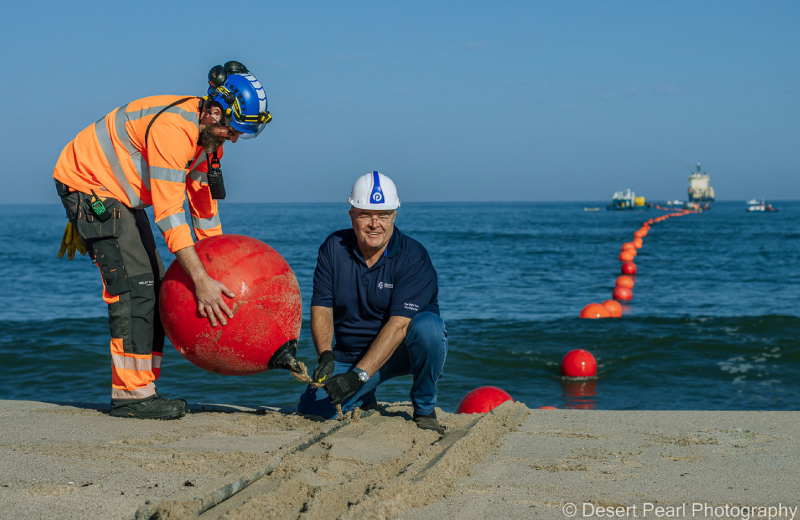
Google’s Equiano subsea internet cable, which seeks to connect Europe to Africa via the ocean, has made a new landing in Africa en route to its final destination of Cape Town, South Africa.
According to an announcement made yesterday, the Equiano cable has now landed in Swakopmund, Namibia. Paratus Group, one of the two companies designated to build the cable landing station (CLS) in the country along with Telecom Namibia, says that the Equiano subsea cable will increase the country’s connectivity through faster internet speeds.
The CLS in question has already been completed by Paratus as the structure itself was finished in September 2021. In January 2022 the CLS’ internal fit, including power, cabling cabinets, conduits, raceways, cages, and security, saw completion.
“This marks a significant milestone in the development of Namibia and brings us one step closer to our goal of transforming Africa through exceptional digital infrastructure and customer service,” says Paratus Group CEO Barney Harmse about the cable’s landing.
Harmse says that the Equiano cable, expected to become fully operational in Q4 2022, will provide 4 times the bandwidth capacity of the West Africa Cable System (WACS) which Namibia is currently relying on for international connectivity.
The cable will increase the internet speeds in the Southern African country by 2.5 times and increase internet penetration by 7.5% in the next three years, according to a new study by Africa Practice and Genesis Analytics.
Further, Telecom Namibia CEO Dr. Stanley Shanapinda says that the Equiano cable is expected to improve connectivity and accelerate job creation in Namibia – with 21,000 indirect jobs forecasted to be created between 2022 and 2025 as a result of the cable’s effect on the expansion of the country’s digital economy and associated sectors.
Nitin Gajria, MD of Google Sub-Saharan Africa said “We’ve worked with experts – Paratus Group (and Telecom Namibia) in Namibia – to guarantee that Equiano has the greatest potential effect in Namibia and throughout Africa,”
He continued that Google is committed to supporting Africa’s digital transformation and chimed that he was excited to see the impact of the cable’s landing in Namibia.
By Luis Monzon
Follow Luis Monzon on Twitter
Follow IT News Africa on Twitter